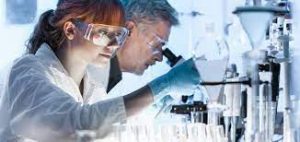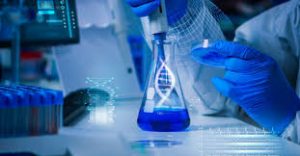Impacts of Biotechnology
Impacts of Biotechnology
Impacts of Biotechnology: Shaping the Present and Future
Impacts of Biotechnology, the integration of biology with technology, has significantly transformed various aspects of human life and the environment. Through the application of cellular and bio molecular processes, biotechnology has led to groundbreaking advances across multiple sectors, including healthcare, agriculture, industry, and environmental management. This article explores the key impacts of biotechnology—both positive and negative—and its implications for the future.

1. Healthcare Advancements
One of the most visible and beneficial impacts of biotechnology is in the field of healthcare. Modern biotech has revolutionized disease diagnosis, treatment, and prevention.
-
Genetic Engineering and Personalized Medicine: Techniques such as CRISPR gene editing allow precise modifications to DNA, opening possibilities for treating genetic disorders. Personalized medicine tailors treatments based on individual genetic profiles, improving effectiveness and reducing side effects.
-
Bio pharmaceuticals: Biotechnology has enabled the production of biologically derived drugs, including insulin, monoclonal antibodies, and vaccines. These products have enhanced treatment options for diseases such as cancer, diabetes, and autoimmune disorders.
-
Regenerative Medicine: Stem cell therapy and tissue engineering promise to regenerate damaged tissues and organs, offering hope to patients with previously untreatable conditions.
2. Agricultural Improvements
Impacts of Biotechnology plays a pivotal role in improving crop yield, resistance, and nutritional content, contributing to global food security.
-
Genetically Modified Organisms (GMOs): Crops engineered for traits such as pest resistance, drought tolerance, and enhanced nutrition have increased productivity and reduced the need for chemical inputs like pesticides and fertilizers.
-
Sustainable Agriculture: Biotech aids in developing bio fertilizers and bio pesticides, promoting environmentally friendly farming practices.
-
Livestock Enhancement: Impacts of Biotechnology is also used to improve animal health and breeding, resulting in more robust livestock and increased food production efficiency.
3. Industrial and Environmental Applications
Impacts of Biotechnology contributes to more sustainable industrial processes and environmental conservation.
-
Bio fuels and Bio plastics: Microorganisms engineered to produce bio fuels like ethanol and bio diesel offer cleaner energy alternatives. Bio plastics, derived from renewable sources, reduce plastic pollution.
-
Bio remediation: Certain bacteria and fungi are utilized to clean up oil spills, heavy metals, and other pollutants, restoring ecological balance.
-
Waste Management: Biotechnological processes can convert agricultural and industrial waste into useful products, reducing environmental impact.
4. Ethical, Social, and Economic Considerations
While Impacts of biotechnology offers numerous benefits, it also raises important ethical and societal issues.
-
Ethical Concerns: Gene editing in humans, cloning, and manipulation of life forms spark debates about moral boundaries and long-term consequences.
-
Access and Inequality: Advanced biotech solutions are often expensive, leading to disparities in access, especially in developing nations.
-
Economic Impact: Biotechnology has created new industries and jobs but also disrupted traditional sectors and labor markets.
5. Future Outlook
The future Impacts of biotechnology holds immense promise, from combating climate change and curing complex diseases to advancing space exploration through synthetic biology. However, responsible innovation, robust regulation, and public engagement are crucial to ensuring its benefits are equitably shared and potential risks are mitigated.

1. Healthcare
-
Disease Treatment and Prevention: Impacts of Biotechnology has enabled the development of advanced medicines, such as vaccines, antibiotics, and bio pharmaceuticals (e.g., insulin, monoclonal antibodies).
-
Genetic Engineering: Techniques like CRISPR allow scientists to modify genes, offering potential cures for genetic disorders.
-
Personalized Medicine: Treatments can now be tailored to individual genetic profiles, improving outcomes and reducing side effects.
2. Agriculture
-
Improved Crop Yields: Genetically modified crops are more resistant to pests, diseases, and environmental stress, increasing food production.
-
Nutritional Enhancement: Crops can be engineered to contain more vitamins and minerals (e.g., Golden Rice enriched with Vitamin A).
-
Reduced Chemical Use: Biotech crops often require fewer pesticides and herbicides, reducing chemical runoff and environmental harm.
3. Industry and Environment
-
Bio fuels and Green Energy: Biotechnology is used to produce bio fuels like ethanol and bio diesel, offering renewable energy sources.
-
Bio plastics and Biodegradable Materials: These reduce reliance on petroleum-based products and help decrease plastic pollution.
-
Environmental Cleanup: Bio remediation uses microorganisms to clean up oil spills, heavy metals, and other pollutants.
4. Economic and Social Impact
-
Job Creation and Innovation: Biotechnology drives growth in biotech industries, creating high-tech jobs and fostering innovation.
-
Access and Equity Issues: While biotech has the potential to benefit many, access to its advancements can be unequal, especially in poorer regions.

1. Ethical Considerations: Gene editing, cloning, and manipulation of organisms raise ethical questions about the limits and regulation of biotechnology. Healthcare Access and Equity
-
Improved Treatments: Biotechnology has led to life-saving treatments and personalized medicine, improving health outcomes.
-
Access Inequality: Advanced biotech therapies can be expensive and are often unavailable in low-income or rural areas, leading to disparities in healthcare access.
-
Public Health Benefits: Vaccines developed through biotechnology have helped control or eradicate diseases, benefiting entire populations.
2. Food Security and Agricultural Changes
-
Increased Food Supply: Genetically modified crops can grow in poor soil or resist pests, contributing to global food security.
-
Concerns Over GMOs: Some communities are skeptical or opposed to genetically modified organisms due to health, safety, or religious beliefs.
-
Changes in Farming Practices: Small-scale farmers may struggle to compete with large companies using biotech-enhanced seeds and technologies.
3. Employment and Economic Shifts
-
New Jobs and Industries: Impacts of Biotechnology has created jobs in research, manufacturing, and biotech services.
-
Job Displacement: Traditional agricultural and industrial jobs may be lost or transformed as biotech methods replace older practices.
4. Ethical and Cultural Impacts
-
Moral Dilemmas: Topics like cloning, gene editing, and embryo research raise questions about the moral limits of science.
-
Cultural Beliefs: Some biotechnological practices may conflict with cultural or religious values, leading to public resistance or debate.
5. Education and Public Awareness
-
Increased Need for Science Literacy: As biotech becomes more integrated into daily life, there’s a growing need for the public to understand its benefits and risks.
-
Misinformation and Fear: Lack of knowledge or exposure to misinformation can cause public fear or rejection of beneficial technologies.
6. Legal and Social Regulation
-
Policy and Regulation: Societies must create laws and frameworks to ensure biotechnology is used safely and ethically.
-
Public Involvement: Citizens increasingly demand to be part of the decision-making process in how biotech is developed and used.

1. Improved Healthcare
-
Disease Diagnosis and Treatment: Impacts of Biotechnology has enabled faster and more accurate diagnosis of diseases and development of targeted treatments, including for cancer, genetic disorders, and infectious diseases.
-
Vaccines and Medicines: Impacts of Biotechnology innovations have led to life-saving vaccines (e.g., for COVID-19) and drugs like insulin and monoclonal antibodies.
-
Personalized Medicine: Treatments can be tailored to an individual’s genetic makeup, increasing effectiveness and reducing side effects.
-
Gene Therapy and Regenerative Medicine: These offer hope for curing previously untreatable genetic and degenerative diseases.
2. Enhanced Food and Nutrition
-
Genetically Modified Crops (GMOs): These are engineered to be more nutritious, resist pests and diseases, and tolerate harsh environmental conditions, ensuring more reliable food supplies.
-
Bio fortification: Crops are enriched with essential nutrients (e.g., Golden Rice with vitamin A) to combat malnutrition.
-
Increased Agricultural Productivity: Helps meet the food demands of a growing global population with less land and fewer resources.
3. Environmental Protection
-
Bio remediation: Microorganisms are used to clean up pollutants, including oil spills and heavy metals, improving living conditions and ecosystem health.
-
Reduced Chemical Use: Biotech crops often require fewer pesticides and herbicides, decreasing environmental and health risks associated with chemical exposure.
-
Bio fuels: Impacts of Biotechnology enables the production of renewable energy sources, reducing reliance on fossil fuels and mitigating climate change.
4. Economic and Social Benefits
-
-
Job Creation: The Impacts of biotechnology industry generates employment in research, manufacturing, agriculture, and healthcare.
-
Poverty Reduction: By increasing agricultural productivity and improving health, biotech can lift communities out of poverty and improve livelihoods.
-
Public Health: Enhanced disease prevention and environmental health lead to longer life expectancy and improved quality of life.

-
1. Health and Medical Advancements
-
Improved Treatments and Diagnostics: Biotech has revolutionized medicine with personalized treatments, gene therapy, and advanced diagnostics.
-
Increased Life Expectancy: New vaccines and drugs have reduced mortality from many diseases.
-
Healthcare Inequality: Access to advanced biotech therapies can be limited, especially in low-income regions, creating health disparities.
2. Food and Agriculture
-
Food Security: Genetically modified crops help increase yields and resist pests, contributing to global food stability.
-
Nutrition Improvement: Bio fortified crops address malnutrition (e.g., Golden Rice enriched with vitamin A).
-
Public Concern: Some people are concerned about the safety, ethics, and environmental effects of GMOs, affecting acceptance and policy.
3. Environmental Impact
-
Pollution Reduction: Bio remediation and biodegradable products help reduce environmental damage.
-
Sustainable Farming: Biotechnology promotes reduced chemical use and soil conservation.
-
Ecological Risks: There’s concern that genetically modified organisms could disrupt ecosystems or reduce biodiversity.
4. Economic and Employment Effects
-
Job Creation: The biotech industry creates high-skill jobs in research, development, and production.
-
Global Competition: Countries investing in biotech gain economic advantages, but it may also widen the gap between tech-rich and tech-poor regions.
-
Displacement: Traditional farming and manufacturing jobs may be replaced by biotech-driven methods.
5. Ethical and Cultural Implications
-
Moral Questions: Genetic engineering, cloning, and synthetic biology raise ethical issues about the limits of science.
-
Cultural Conflicts: Some biotech applications may conflict with religious or cultural beliefs.
-
Consent and Regulation: Concerns arise over informed consent, genetic privacy, and how far governments and companies should go in using biotech.
6. Public Awareness and Education
Need for Science Literacy: As biotech becomes more common, societies need better public understanding to make informed decisions.
Misinformation Risks: Lack of knowledge can lead to fear, resistance, or the spread of false information about biotechnology.

1. Genetic Contamination and Loss of Biodiversity
One of the primary concerns with biotechnology, especially in agriculture, is the risk of genetic contamination. Genetically modified (GM) organisms can crossbreed with wild species, leading to unintended consequences.
-
Example: GM crops may transfer modified genes to wild relatives, potentially creating “super weeds” or altering ecosystems.
-
Impact: This can reduce biodiversity, disrupt natural habitats, and make ecosystems more fragile and less adaptable.
2. Health Risks and Unknown Side Effects
While many biotech products undergo safety testing, long-term health impacts are not always fully understood.
-
Example: Some people worry about allergic reactions or other unknown health effects from consuming genetically modified foods.
-
Impact: Public skepticism and health concerns can arise when scientific data is limited or not communicated clearly.
3. Ethical Concerns and Moral Dilemmas
Impacts of Biotechnology often raises ethical issues that challenge societal norms and personal beliefs.
-
Example: Gene editing in humans (like using CRISPR to alter embryos) prompts debates over “designer babies,” human enhancement, and the potential for inequality.
-
Impact: These practices raise questions about playing God, the boundaries of science, and consent—especially when future generations are affected.
4. Economic Inequality and Corporate Control
The Impacts of biotechnology industry is often dominated by a few powerful corporations, leading to economic and social inequality.
-
Example: Patents on biotech seeds and drugs can make small farmers or poor countries dependent on large companies.
-
Impact: This can increase costs, limit access to life-saving technologies, and widen the gap between rich and poor.
5. Bio security and Bio terrorism Risks
Impacts of Biotechnology can be used to engineer harmful biological agents, either accidentally or intentionally.
Example: Synthetic biology could potentially be used to create viruses or bacteria for biological warfare or terrorism.
Impact: Such misuse poses a serious threat to global health and security, requiring strict regulation and surveillance.

1. Advancements in Healthcare
One of the most remarkable impacts of biotechnology is in the field of medicine.
-
Better Disease Treatment: Impacts of Biotechnology has enabled the development of innovative treatments for conditions like cancer, diabetes, and genetic disorders.
-
Personalized Medicine: By analyzing a person’s genetic information, treatments can now be tailored to individuals, increasing effectiveness and minimizing side effects.
-
Vaccine Development: Impacts of Biotechnology played a crucial role in creating vaccines rapidly, such as during the COVID-19 pandemic.
-
Gene Therapy: Scientists can now fix faulty genes, offering potential cures for previously incurable diseases.
2. Increased Agricultural Productivity
Impacts of Biotechnology helps farmers grow more food, more efficiently, and with fewer resources.
-
Genetically Modified (GM) Crops: These are engineered to resist pests, tolerate drought, and grow in poor soil conditions.
-
Improved Nutrition: Crops like Golden Rice are enriched with essential vitamins to fight malnutrition in developing countries.
-
Reduced Chemical Use: Biotech crops often require fewer pesticides and herbicides, which is better for the environment and human health.
-
Sustainable Farming: Biotechnology supports sustainable agriculture by reducing land and water usage.

3. Environmental Protection
Impacts of Biotechnology is playing an important role in conserving the environment.
-
Bio remediation: Special microbes are used to clean up oil spills, toxic waste, and heavy metal pollution.
-
Biodegradable Products: Bio-based plastics and materials break down more easily than traditional plastics, reducing environmental waste.
-
Cleaner Energy: Bio fuels made from plants or algae offer a renewable alternative to fossil fuels, lowering greenhouse gas emissions.
4. Industrial Innovation
Industries benefit from biotech through safer, cleaner, and more efficient production.
-
Enzyme Production: Enzymes created using biotechnology are used in everything from laundry detergents to food processing.
-
Sustainable Manufacturing: Biotech helps create products with less energy and fewer pollutants.
-
New Materials: Biotech enables the creation of innovative materials like spider silk proteins or bio-based fabrics.
5. Economic Growth and Job Creation
The Impacts of biotechnology industry is a powerful driver of economic development.
- High-Skill Jobs: It creates employment opportunities in research, development, manufacturing, and healthcare.
- Global Trade: Biotech products like GM crops and pharmaceuticals are major exports for many countries.
- Startups and Innovation: A growing number of biotech startups are pushing scientific boundaries and attracting investment.


